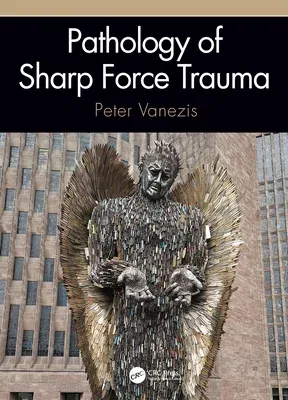Pathology of Sharp Force Trauma illustrates and details sharp force
trauma as seen in forensic pathology case work as well as in the
clinical setting, outlining how one informs the other in interpreting
such trauma for medico-legal purposes.
For the purposes of discussion, the author defines sharp force trauma
as: "The application of force to produce an injury which results in a
clear division or separation of the skin and underlying tissues". Sharp
force trauma may be caused by all manner of implements with a sharp edge
and/or pointed end, whether or not they have been produced for use as a
weapon, and includes knives, broken glass, scissors and many others, to
name but a few. Certain tools, such as axes or machetes, combine a sharp
edge with heavy weight and produce injuries with both sharp and blunt
impact elements.
In many countries, with the exception of those where firearms are
readily available, sharp force trauma--particularly the use of
knives--is the most common method of homicide and a frequent source of
morbidity seen in emergency departments. Also, there has recently been
an alarming upsurge in the use of knives in gang-related assaults and in
terrorist incidents. As such, the book takes a comprehensive approach in
explaining the different aspects of such trauma, most importantly the
manner in which the victim has died. This includes cases of homicide,
suicide or accident, indicating the type of weapon responsible,
explaining how it was used, and presenting other such information to the
investigation of such cases.
Features:
- Includes over 400 full-color graphic and illustrative images
throughout
- Addresses all aspects of the investigation including trauma, crime
scene findings, post-mortem examination, characteristics of injuries and
categorization into homicide, suicide or accident
- Covers the biomechanics of knife trauma and tool mark examination
techniques to identify implements used
- Illustrates penetrating injuries caused by pointed implements which
have linear components, such as arrows, nails, spears, stakes and others
- Details cutting, penetrating, and other sharp force injuries
resulting from medical intervention in a healthcare environment, such as
might occur during surgical procedures
- Examines sharp injuries caused by domesticated and wild animals
- Written by one of the premier forensic pathologists in the world with
over 40 years of first-hand case experience
Pathology of Sharp Force Trauma is the first substantive book published
in English to look exclusively at this subject. Although primarily
intended for pathologists and clinicians who are involved in the
examination of such injuries in the post-mortem room or in a hospital
environment, it will also be of interest to medical examiners, police
and criminal investigators, attorneys and legal professionals, personnel
in other forensic disciplines, and all doctors and medical students with
an interested in trauma and its management.

